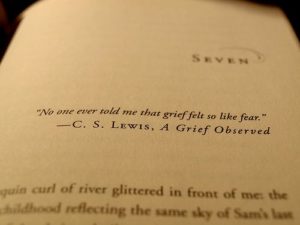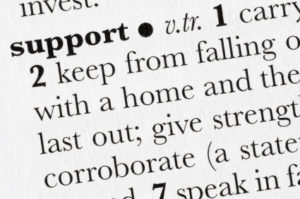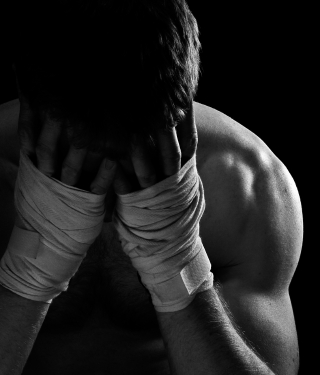Put Me In The Corner: Brawling with Grief
Imagine for a moment that you are a professional strike artist. A master of the body shot, and a prolific producer of the “right hook”. You’re fast, strong, and calculating. Anybody who has ever stepped in the ring with you has found defeat, whether it be by knockout or unanimous decision. You’re unstoppable, unbeatable. The ultimate fighter.
Now imagine you step in the ring, just like any time before, and as you turn your gaze upon the foe in the other corner, you are crushed by fear. Your chest tightens as you see that they outweigh you by 100 pounds. The hairs on the back of your neck stand up as you notice its reach is greater than yours by about 8 inches, and your stomach squirms as you look into their eyes and see nothing but a void of darkness and pain. The odds are insurmountable. The hopes of a win: diminished. This foe is going to beat you.
Then, from behind you, you hear a whisper, “It’s ok, you can do this.” You turn around and see a swarm of faces, some you recognize and others are unfamiliar. They look to you and nod their heads in unison, reaffirming that although the fear and fight is very real, winning will not be impossible. One of them reaches out a hand and lays it upon your shoulder, looks into your eyes and says, “We are here for you. We will be your strength.” The tightness in your chest subsides; the hair on the back of your neck rests, and your stomach turns from a roaring squall to a calm ocean current.
You have found it. Your confidence. Your strength. Your will to win.
Now, who is this mystery opponent? Well, it’s Grief.
 The ferocious, blind siding, merciless monster of grief is there to fight, to beat you down, to overwhelm you.
The ferocious, blind siding, merciless monster of grief is there to fight, to beat you down, to overwhelm you.
Its weight is sorry, its reach is endless, and its deep-set eyes are dark. Each person who experiences a death of a loved one has to step into the ring with this unmatchable foe, and fight endless grueling rounds with it. The whole time, death is throwing jabs of anger, left hooks of despair, and haymakers of regret. Perhaps you are countering each strike with a happy memory, maybe you are in denial, or you’re telling everyone “I’m fine”.
But it’s not enough. Grief seeks to break you. That is where the man in the corner comes in.

Photo Courtesy of iStock/DaddyBit
I’ve never been a huge fan of boxing, but I have always found the idea of the “man in your corner” to be the best coaching method. They are only a few feet away, yelling out instructions or boosting their player’s confidence. No fancy signs, no whistles, and no prancing up and down a sideline. The coach’s involvement in boxing is personal, beside you the whole way.
Getting to meet grieving people is what I do. I am one of those unfamiliar faces, but I’m there to support and help.
When you meet someone who has gone through loss, my challenge for myself, and to each one of you reading this is:
– Be that person in the corner. Offer love, care, and be a presence in their journey.
– Be bold. Say what your heart tells you to say, not what your brain finds more comfortable.
– Be physical. Physical communication is important, too. Offer a hug, an arm around the shoulder, or a two-handed handshake. If the person isn’t particularly touchy, respect that and find a way of connecting with them that is comfortable for them.
The more I think about this notion, the more I have become fond of boxing. The man in the corner is a gift, and I hope to offer myself as that gift to anyone who needs it. I hope you, as a reader, will do the same.





44 Comments
Michael…..Thank you for sharing your thoughts about grief…..by the way C.S. Lewis is one of my favorite authors….what a great quote from him…..Mark